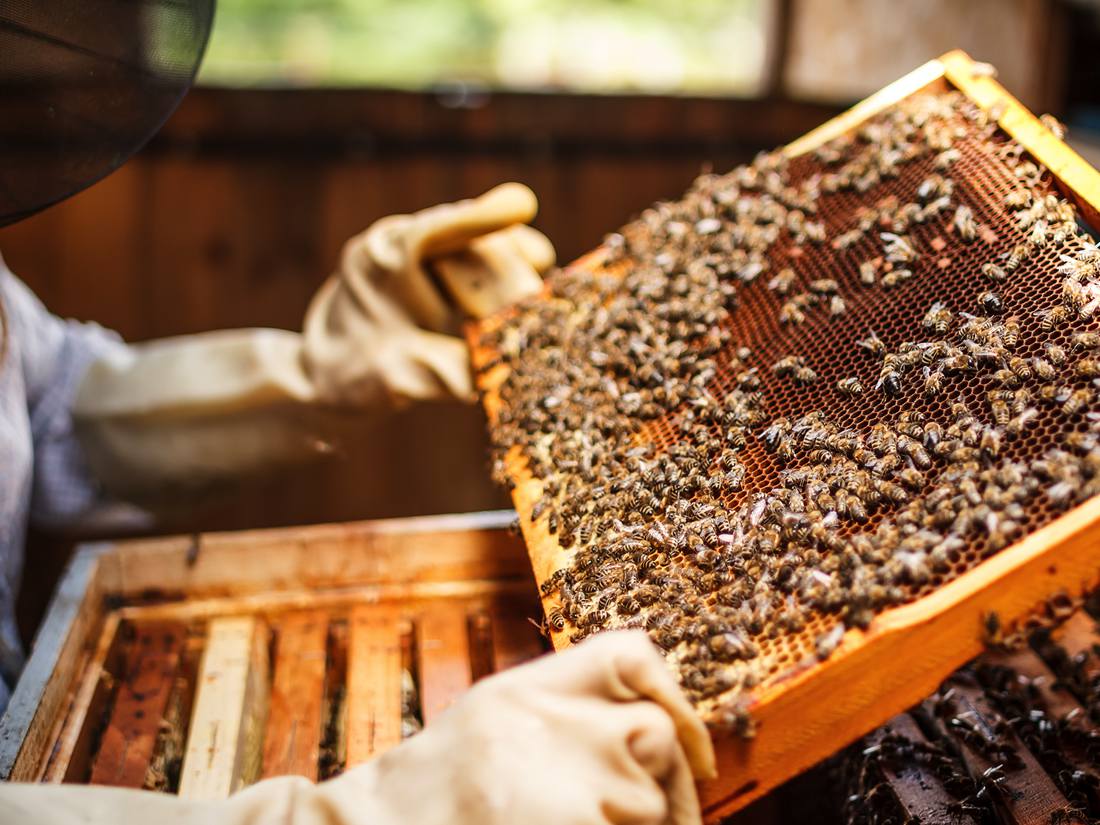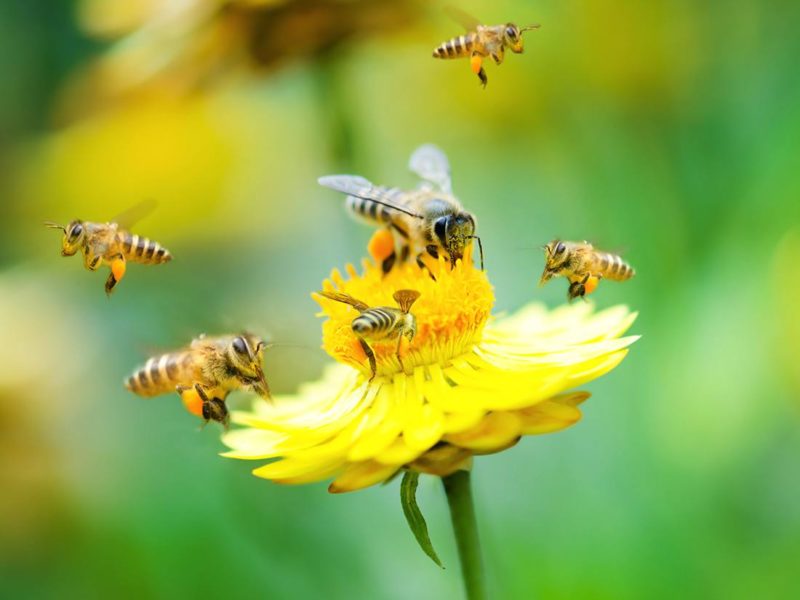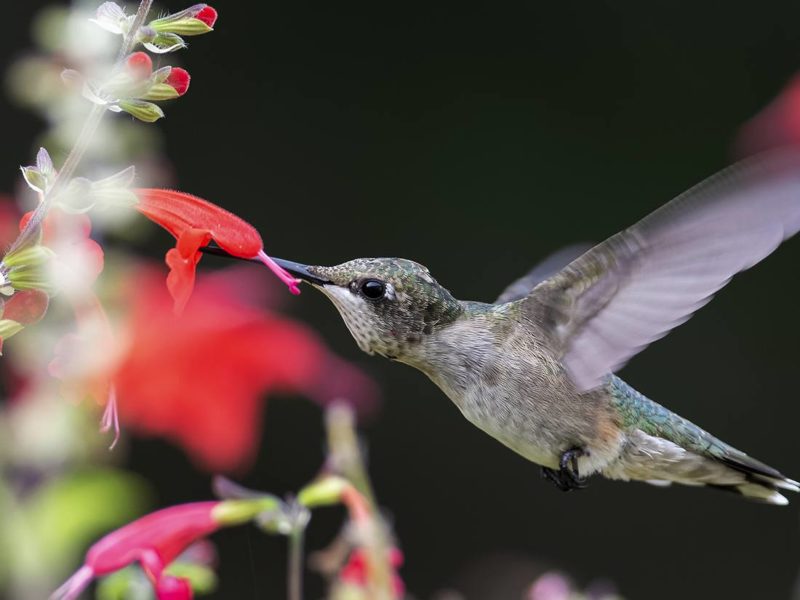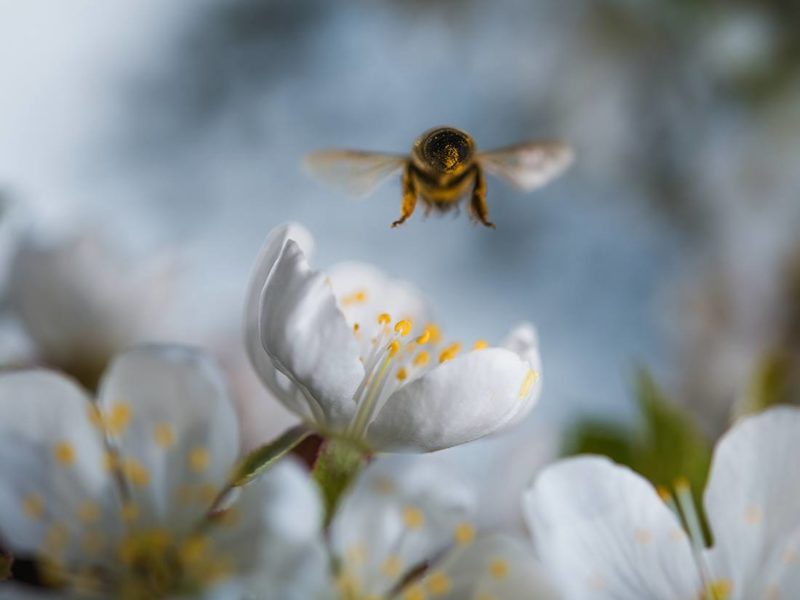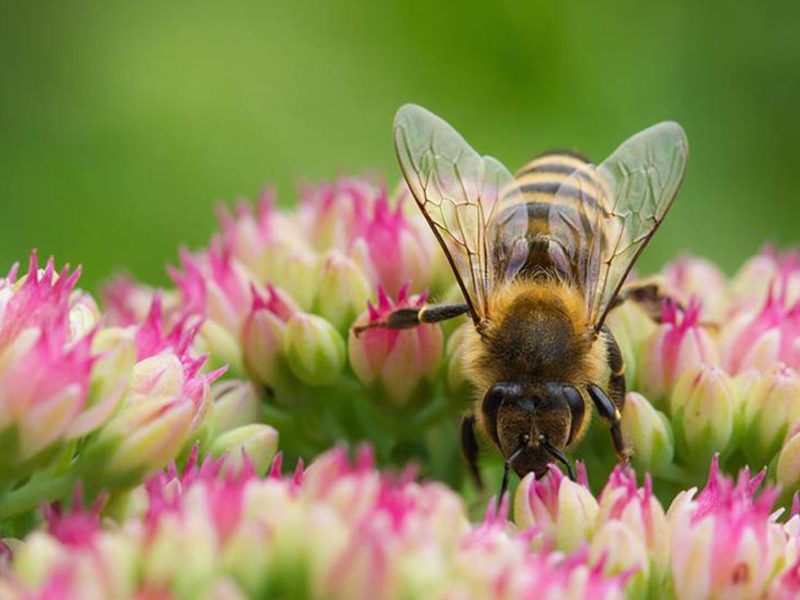Pollinators need all the help we can give
You can support bees in your own backyard by providing pesticide-free habitat, growing bee-friendly plants or perhaps even becoming a beekeeper. Every little bit makes a difference.
Post a bee-friendly yard sign
If your yard or potted plants are pesticide-free, post a bee sign and show your support for pollinator health. You might even inspire a neighbor to join you in taking a stand for bees!
Plant a bee-friendly garden
You donʼt need a lot of space, just a little extra consideration. A few containers of the right kinds of plants tucked into your garden will get you started. Even in the city, a container on a balcony or front stoop can make a big difference to the growing number of urban bees and their beekeepers.
Use this handy guide to learn more about pollinator-friendly habitat, including wildflowers that are known to nurture bee populations in the U.S., along with information about planting by season so you (and bees) can enjoy flowers in bloom all year round.
Become a backyard beekeeper
Join the ranks of backyard beekeepers! Learn the basics by joining a local beekeeper’s association like this one that can provide additional support and resources as you establish your hive. Beginner’s classes are often offered at the start of the year, as people prepare to get their hives settled in the spring.
Know what’s on your food
Many foods are grown with the use of pesticides that are especially harmful to bees. Choosing bee-friendly produce will help protect honey bees foraging in orchards and agricultural fields. Know what’s on your food, especially honey! Visit www.whatsonmyfood.org.


